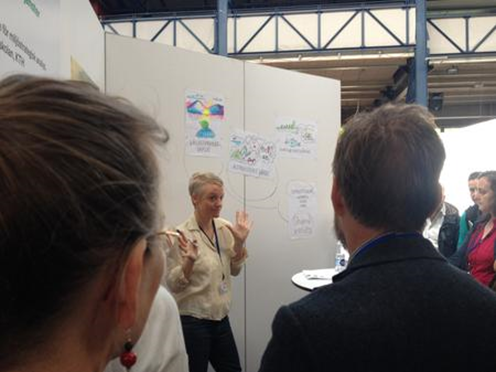Shared values of ecosystem services
Comparative studies of contingent and deliberative valuation methods to assess subtle values of marine ecosystems
Project description
The key focus of this project, funded by Formas (2015-2018), is to develop a comprehensive approach to assess those ecosystem services usually called cultural ecosystem services, which concern experience-based benefits to human well-being, such as recreational activities and more subtle intrinsic non-use values of nature.
In case studies in the area named Eight Fjords , surrounding the islands of Orust and Tjörn north of Gothenburg at the Swedish west coast, we explore and compare the results of “conventional” monetary valuation methods (so called contingent valuation surveys, asking people about their individual willingness to pay, WTP, for an environmental change) and techniques where focus group participants are able to deliberate and express values and priorities related to a management project for improved water quality (so called deliberative valuation). The latter is expected to surface important non-use values that usually are ignored in traditional valuation exercises.
Some of our main research questions are:
- Which ecosystem values are identifiable and not under different methodological circumstances?
- What are the underlying motives of different values expressions elicited through “conventional” valuation and deliberated valuation respectively?
- In what way do value expressions elicited through different methods conflict or overlap?
- Can we identify and describe the more subtle values of nature and their relative contribution to human wellbeing, and if so, how can such values be made useful in decision-making material in environmental management, to enrich it and avoid biases?
To evaluate our results with respect to usability, decision-makers from local to national level will be consulted in deliberative evaluations.
Combining value theory and practice of traditional environmental economics with recent developments from ecological economics, the project touches upon the often-debated issue on how the science of economics can – and cannot – contribute to impact assessments of complex issues around shared resources where a multitude of values are at stake.

The study is run in collaboration with the project leaders of the Eight fjords area, as well as with researchers Jasper Kenter at Scottish Association for Marine Science (SAMS), University of the Highlands and Islands, and Therese Lindahl at the Beijer Institute of Ecological Economics in Stockholm.
Research group
Lina Isacs , PhD student, environmental economist, KTH
Cecilia Håkansson, Associate professor, environmental economist, KTH
Susanne Baden , Professor, marine ecologist, University of Gothenburg
Hanna Wetterstrand , PhD student, Stockholm Resilience Centre
